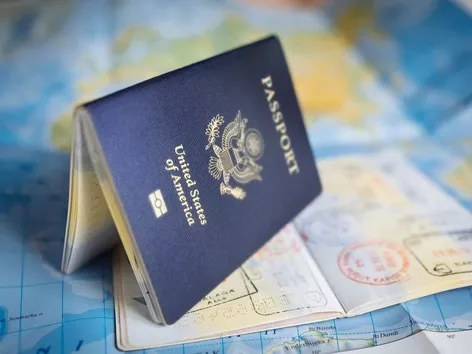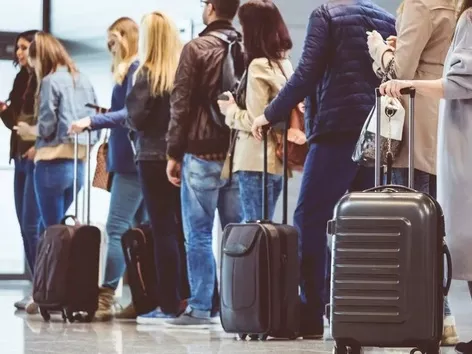Jobs for foreigners in Belgium in 2024: the labor market, where to look for a job and a visa
Table of contents
- Labor market in Belgium
- Where do expats work in Belgium?
- Salary level in Belgium
- Labor law of Belgium
- How to find a job in Belgium?
- Who needs a work visa to work in Belgium?
- Who can work in Belgium without a visa?
- Types of work permits in Belgium
- List of documents for obtaining a work visa to Belgium
- How to get a residence permit to work after entering Belgium?
- Is it possible to move with the family?

Belgium is one of the richest countries in Europe, and its capital, Brussels, is the city where the European Commission, the Council of the European Union are located, and one of the three cities where the European Parliament is located. All these factors contribute to the employment of foreigners here. Find out what it takes to find a job in Belgium in 2024
Belgium is a small European country with a well-developed economy and a high standard of living. The country is washed by the North Sea and is an important international political center.
A stable economy and high wages encourage more and more potential workers to come to Belgium for work. After all, the country allows not only citizens of EU countries to work here, but also representatives of all other countries of the world.
Labor market in Belgium
The unemployment rate in Belgium is 5.4%, which is below the EU average (6.7%). However, unemployment among young people (younger than 25 years old) in percentage terms is twice this indicator and is 13%.
The majority of Belgians work in the service sector – legal, banking, mass media and tourism. In addition, about a quarter work in the textile, machine-building, automotive and chemical industries.
Since Brussels is home to many institutions of the EU, NATO and many other large international organizations and multinational companies, Belgium has a lot of jobs for foreigners.
Where do expats work in Belgium?
Most of the available vacancies in Brussels are for highly qualified workers in the service sector. The country constantly reports a shortage of IT and engineering workers.
Belgium is also looking for workers in the health sector, education, social services, workers for real estate agencies and international companies.
Salary level in Belgium
Belgium has one of the highest average and minimum wages in Europe. The average full-time salary was €3,858 per month and around €5,330 per month for skilled workers with a master's degree. The minimum wage in Belgium is about 1,700 euros.
However, Belgium also has one of the highest tax rates in Europe – between 25-50% depending on the income.
In order to safely move, travel or work in a new country, you will need health insurance. You can issue an extended policy on our website using the link.
Labor law of Belgium
All full-time and part-time employees in Belgium sign an employment contract. Those working under a contract of at least 12 months are entitled to a minimum of 20 days of paid holiday per year.
Contracts will set out the terms of employment and specify the notice period to be given by either party.
Your employer may offer you a temporary contract initially as a trial period. In general, you will most likely work a 38-hour week with an 8-hour day.
How to find a job in Belgium?
Most expats search for a job in Belgium on one of the following sites: Academic Jobs EU, BrusselsJobs, Eurograduate, Heidrick & Struggles, Jobat, Indeed, Top Language Jobs and U.S. Embassy in Belgium.
You can also use the help of a recruitment agency or visit the local employment service.
Who needs a work visa to work in Belgium?
Citizens of non-EU or EEA countries must apply for a work permit to live and work in Belgium. Therefore, you first need to apply for a long-term visa to enter Belgium, and upon arrival you must apply for a residence permit with work rights.
Who can work in Belgium without a visa?
Citizens of the EU, EEA (Iceland, Liechtenstein and Norway) and Switzerland can work in Belgium without a visa or work permit. In addition, citizens of the following countries can obtain a residence and work permit upon arrival in Belgium without a prior visa application: USA, Japan, Canada, New Zealand, Australia and Israel.
Types of work permits in Belgium
There are currently three types of work permits for foreigners in Belgium:
- Type A work permit
To be eligible for this work permit, you must have a type B permit for four years during your 10-year stay in Belgium. Type A permits are valid indefinitely.
- Type B work permit
To obtain this type B permit, your employer must apply on your behalf for a specific position (which cannot be filled by a Belgian or EU citizen).
- Type C work permit
If you are a temporary visitor or an asylum seeker whose right to stay in Belgium is not permanent and you want to work in Belgium, you will need a type C permit. It is valid for up to one year.
List of documents for obtaining a work visa to Belgium
- Valid passport.
- Work permit – you must be employed in Belgium before applying for a work visa. A work permit will allow you to live and work in Belgium.
- Health insurance – to apply for a work visa in Belgium, you must first obtain health insurance as a foreign worker in the country.
- Medical certificate – You must prove that you do not have any health problems that could threaten public health.
- Proof of residence – You need to prove that you will have a place to live in Belgium.
- Proof of financial capacity – You must have proof that you are financially able to live in Belgium.
- Proof that you have no criminal record.
How to get a residence permit to work after entering Belgium?
Upon arrival in Belgium, you must register in the register of foreigners at your local administration or town hall. You will then need to apply for an ID card and provide fingerprints. Once you meet these requirements, you will receive an ID that acts as a residence permit.
Is it possible to move with the family?
Yes, you can bring your family with you by finding suitable housing for you and your family. You must be able to prove that you are financially able to support them. Your family members must apply for a D family reunification visa at the Belgian embassy in your country.
With its thriving economy, diverse culture and high quality of life, Belgium offers the perfect environment for your professional and personal growth, so moving here can be a positive experience for a foreigner.
We will remind you! We have already told you that foreigners who plan to settle in the country must have a residence permit in Belgium, the procedure for obtaining which depends on the expat's citizenship and the grounds for issuing the document.
Igor Usyk - Head of Migration department at VisitWorld
To ensure a safe move to a new country, I advise you to consult a specialist. My colleagues, qualified specialists with a legal education, will help you avoid unpleasant situations during migration.
Products from Visit World for a comfortable trip:
Checklist for obtaining a visa and necessary documents for Belgium;
Legal advice on immigration to Belgium;
Travel insurance for foreigners in Belgium;
Medical insurance all over the world.
Frequantly
asked questions
How can a foreigner get a job in Belgium?
Can I find a job in Belgium if I only speak English?
Can I move to Belgium without a job?
Recommended articles
2 min
Residence permit
To travel, learn new cultures and earn money at the same time is the dream of many people in the world. It is quite possible to experience life in another country within the framework of the Working Holiday Program. Find out what this special type of visa is, in which countries it is valid and what are the advantages and disadvantages of this method of moving abroad
28 Aug. 2024
More details1 min
Employment
If you want to work in Ireland, you need a work permit issued by the Department of Enterprise, Trade and Employment (DETE). Given the shortage of workers currently observed in the country, local authorities have significantly simplified the procedure for obtaining a permit. Find out what has changed for expats in Ireland since 2 September
02 Sep. 2024
More details2 min
Employment
In 2024, New Zealand introduced a number of important changes to visa and migration policies. Find out what these changes are, what categories of permits are affected by the innovation and who should be prepared for the new rules
04 Sep. 2024
More details2 min
Travels
Japan plans to change visa-free travel rules for travelers from 71 countries by introducing a new travel authorization system. Find out when they plan to approve the new system, how entry rules will change and what requirements are relevant in 2024
05 Sep. 2024
More detailsAll materials and articles are owned by VisitWorld.Today and are protected by international intellectual property regulations. When using materials, approval from VisitWorld.Today is required.
